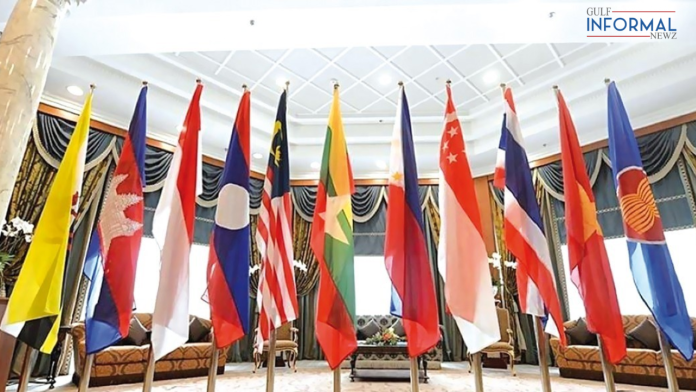Despite their geographical distance from the coasts, Central Asian countries have enormous economic potential, including fertile lands, hydroelectric rivers, and areas for wind energy, in addition to rich natural resources such as gold and uranium.
Announce Saudi Minister of Investment, Khaled Al-Faleh, about New opportunities to enhance trade and investment between member states. Emphasizing the importance of joint work to explore and exploit the economic potential available in Central Asian countries.
During his speech before Economic and Investment Conference for the Gulf Cooperation Council Countries and ASEAN countries (ASEAN), in Riyadh today, pointed out that the countries of the Gulf region and the countries of Central Asia can benefit from multiple channels to enhance trade and investment, despite their distance from the seas, to increase trade and meaningful investment, despite the geographical challenges facing the countries of Central Asia.
Also Read: The UAE signs a comprehensive economic partnership agreement with South Korea
Al-Falih pointed out that the countries of Central Asia, despite being far from the sea coasts and considered geographically “landlocked”, possess enormous economic potential that can be exploited through determination and joint action.
He explained that these countries have fertile lands that can be invested in agricultural development, flowing rivers that can be used to produce hydroelectric energy, in addition to vast areas that provide multiple opportunities for exploiting wind energy.
The minister added that Central Asian countries possess natural resources that can be a strong pillar of sustainable economic growth not only in the region, but globally. For example, Kazakhstan and Uzbekistan have significant oil and gas resources, while Georgia, Tajikistan and Uzbekistan have significant gold and mineral reserves. He also noted that Kazakhstan has the largest reserves of uranium in the world, which is an important element in generating non-carbon energy.
Al-Falih stressed that these capabilities represent tremendous opportunities for cooperation and partnership between countries, calling for the need to find appropriate ways to invest them jointly.
In the context of his speech, Al-Falih highlighted the historical contributions of the scholars of the Islamic Golden Age who excelled in the Central Asian region. He pointed out that many of the economic and technical transformations that the world is witnessing today have their roots in the contributions of these scientists. He cited the work of the scientist Muhammad bin Musa Al-Khwarizmi, who developed algorithm tables, which are considered the basis for many modern applications in the fields of automation, artificial intelligence, and massive computing.
Al-Falih stressed that the legacy of Islamic scholars represents evidence of the enormous potential that the region possesses, and must be utilized to enhance international cooperation and achieve sustainable development.




